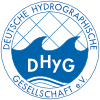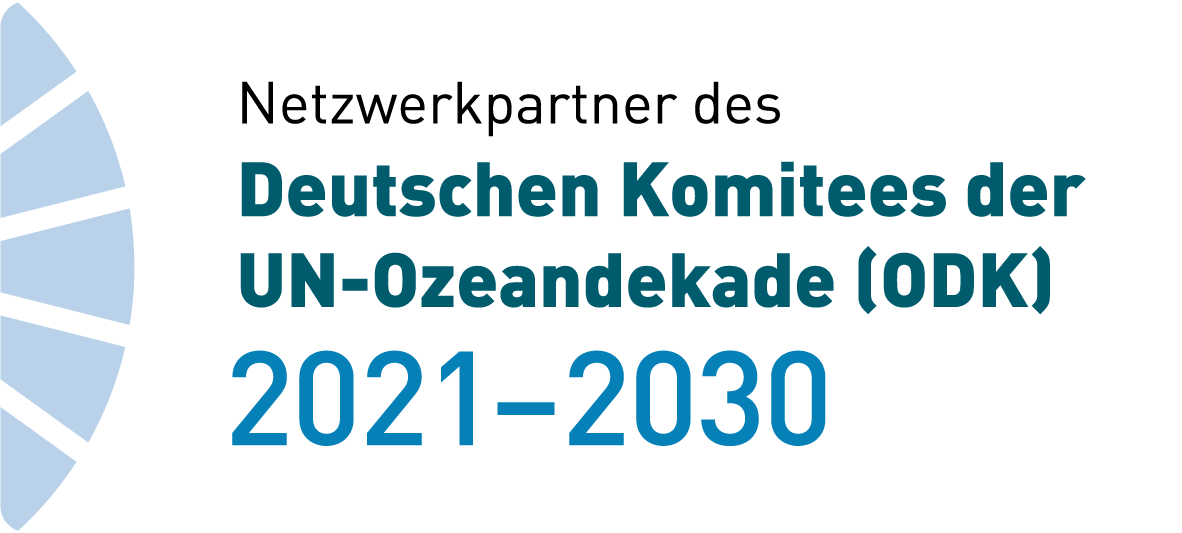HN Ausgaben wählen
- HN 132 (9)
- HN 131 (17)
- HN 130 (10)
- HN 129 (8)
- HN 128 (10)
- HN 127 (6)
- HN 126 (10)
- HN 125 (11)
- HN 124 (8)
- HN 123 (10)
- HN 122 (9)
- HN 121 (10)
- HN 120 (7)
- HN 119 (10)
- HN 118 (7)
- HN 117 (10)
- HN 116 (14)
- HN 115 (10)
- HN 114 (6)
- HN 113 (10)
- HN 112 (7)
- HN 111 (9)
- HN 110 (9)
- HN 109 (11)
- HN 108 (8)
- HN 107 (9)
- HN 106 (7)
- HN 105 (14)
- HN 104 (6)
- HN 103 (11)
- HN 102 (8)
- HN 101 (9)
- HN 100 (13)
- HN 097 (1)
Towards better backscatter data products by multibeam echo sounder systems for improved seafloor mapping
A three-day international workshop on multibeam sonar backscatter was held (October 25-27, 2022) at Dalhousie University (Halifax, Canada), coordinated by the Backscatter Working Group (BSWG), with 20 delegates attending on-site and 37 delegates attending online. The workshop served as a reviver for the BSWG activities which aim at supporting improvements in the quality and consistency of multibeam backscatter data products. The overall goal is to provide backscatter end-users with tools improving their use of backscatter for seafloor and habitat mapping. Several actions have been decided for the future, encompassing in particular the topics of at-sea acquisition, sonar calibration, data processing and collection of reference data.
multibeam echo sounder | backscatter data | BSWG
Vom 25. bis 27. Oktober 2022 fand an der Dalhousie University, Kanada, ein dreitägiger internationaler Workshop statt, koordiniert von der Backscatter Working Group (BSWG), an dem 20 Personen vor Ort und bis zu 37 Personen online teilnahmen. Ziel des Workshops war es, die BSWG-Arbeiten hinsichtlich Verbesserung von Qualität und Konsistenz von Fächerecholotrückstreuinformation zu reaktivieren. Das übergeordnete Ziel hierbei ist es, in Zukunft eine verbesserte Meeresboden- und Habitatkartierung mit Hilfe der Rückstreustärke von Fächerecholoten für die Anwender zu erreichen. Für die Zukunft wurden mehrere Maßnahmen beschlossen, die insbesondere die Themen Datenaufnahme, Sonarkalibrierung, Datenverarbeitung und Sammlung von Referenzdaten umfassen.
Fächerecholot | Rückstreuinformation | BSWG
- Ausgabe: HN 123, Seite 57–58
- DOI: 10.23784/HN123-10
- Autor/en: Jens Schneider von Deimling, Xavier Lurton
»Hydrography is probably one of the best jobs ever in terms of versatility and diversity«
Eric Langlois is French, he works in Germany for an international organisation in Bonn, he is Chairman of the IFHS, a member of the board of the AFHy, which is organising the HYDRO conference in Monaco this year on behalf of the IFHS – we could not have found a more suitable interview partner for this international edition of HN, which is jointly produced by the AFHy and the DHyG.
hydrography in France | HYDRO conference | IFHS Student Award | HPAS | Sustainable Development Goals
Eric Langlois ist Franzose, er arbeitet in Deutschland bei einer internationalen Organisation in Bonn, er ist Präsident der IFHS, Mitglied im Vorstand der AFHy, die in diesem Jahr im Namen der IFHS die HYDRO-Konferenz in Monaco organisiert – einen besser geeigneten Interviewpartner hätten wir für diese internationale Ausgabe der HN, die von der AFHy und der DHyG gemeinsam gestaltet wird, nicht finden können.
Hydrographie in Frankreich | HYDRO-Konferenz | IFHS Student Award | HPAS | Ziele für nachhaltige Entwicklung
- Ausgabe: HN 123, Seite 50–56
- DOI: 10.23784/HN123-09
- Autor/en: Eric Langlois, Holger Klindt, Lars Schiller
Are the clichés true?
We wanted to know: How does the food on offer differ between French and German research vessels? On board a German ship, are there the Königsberger Klopse (meatballs) and Rouladen (roulades), which are considered typically German? Or does the chef take into account the Germans’ love of Italian cuisine by regularly serving lasagne and spaghetti? Is the crew of a French ship spoiled with Mediterranean specialities, is there foie gras, stuffed snails and quiche? We compare the menu on RV Meteor with that on RV Thalassa from 2nd to 5th November.
Wir wollten wissen: Wie unterscheidet sich das Speisenangebot auf französischen und deutschen Forschungsschiffen? Gibt es an Bord eines deutschen Schiffs die als typisch deutsch verschrieenen Königsberger Klopse und Rouladen? Oder berücksichtigt der Koch die Liebe der Deutschen zur italienischen Küche, indem er regelmäßig Lasagne und Spaghetti auftischt? Wird die Besatzung eines französischen Schiffs mit mediterranen Spezialitäten verwöhnt, gibt es Gänseleberpastete, gefüllte Schnecken und Quiche? Wir vergleichen das Menü auf RV Meteor mit dem auf RV Thalassa vom 2. bis zum 5. November.
- Ausgabe: HN 123, Seite 48–49
- DOI: 10.23784/HN123-08
- Autor/en: Jens Schneider von Deimling, Herve Bisquay, Lars Schiller
HPAS – The hydrographic professional accreditation scheme by the IFHS
In such an international branch as hydrography, the need for standards – especially in certification of personnel – is of great importance. The recently introduced multinational hydrographic professional accreditation scheme (HPAS) by the IFHS (International Federation of Hydrographic Societies) including its member societies AFHy and DHyG, allows individuals to gain a professional accreditation not only based on educational qualification, but also on their practical experience and continuing professional development (CPD). The HPAS has received recognition by the IBSC (FIG/IHO/ICA International Board on Standards of Competence) earlier this year, which increases the likelihood that such personal accreditation will become more established in the professional field of hydrography.
HPAS | personal accreditation | IFHS | IBSC | CPD
In einer so international agierenden Disziplin wie der Hydrographie sind Standards wichtig – insbesondere für die berufliche Qualifikation. Vor Kurzem wurde das HPAS – das »Hydrographic Professional Accreditation Scheme« – von der IFHS (International Federation of Hydrographic Societies), darunter auch die AFHy und die DHyG, eingeführt. Das HPAS erlaubt es Einzelpersonen, sich neben ihren Studienabschlüssen auch basierend auf ihren praktischen Berufserfahrungen und kontinuierlichen Weiterbildungen akkreditieren zu lassen. Anfang des Jahres 2022 hat das IBSC (FIG/IHO/ICA International Board on Standards of Competence) das HPAS anerkannt, was die Wahrscheinlichkeit erhöht, dass sich die persönliche Akkreditierung im Berufsfeld der Hydrographie stärker etabliert.
HPAS | persönliche Akkreditierung | IFHS | IBSC | kontinuierliche Weiterbildung
- Ausgabe: HN 123, Seite 44–46
- DOI: 10.23784/HN123-07
- Autor/en: David Vincentelli, Tanja Dufek
Improving the capacity in hydrography
Capacity building (CB) is a highly important part of the strategy of the International Hydrographic Organization (IHO). It provides an extremely valuable opportunity for Coastal States to get support for their development in hydrography and improves the cooperation with other countries. It makes use of the experiences gained to a wider community. It is a vital component of the efforts of intergovernmental technical organisations to support the development goals of the United Nations (UN). The IHO is committed to support its Member States and to a certain extend also other Coastal States, to improve their capacity in hydrography. As the resources are limited, the IHO CB is giving priority to those States that are not capable to fulfil this task completely on their own. This paper describes the way CB is done at the IHO, what challenges it is facing and it gives examples especially from the French national approach.
capacity building | Shom | Category B | vessel construction | funding | e-learning
Der Kapazitätsaufbau (Capacity Building) ist ein äußerst wichtiger Teil der Strategie der Internationalen Hydrographischen Organisation (IHO). Er bietet den Küstenstaaten eine extrem wertvolle Möglichkeit, Unterstützung für ihre Entwicklung in der Hydrographie zu erhalten und die Zusammenarbeit mit anderen Ländern zu verbessern. Er macht die gewonnenen Erfahrungen einem größeren Kreis zugänglich. Er ist ein wesentlicher Bestandteil der Bemühungen zwischenstaatlicher technischer Organisationen, die Entwicklungsziele der Vereinten Nationen (UN) zu unterstützen. Die IHO ist bestrebt, ihre Mitgliedstaaten und in gewissem Umfang auch andere Küstenstaaten bei der Verbesserung ihrer Kapazitäten im Bereich der Hydrographie zu unterstützen. Da die Ressourcen begrenzt sind, bevorzugt der Kapazitätsaufbau der IHO diejenigen Staaten, die nicht in der Lage sind, diese Aufgabe vollständig selbst zu erfüllen. Dieser Artikel beschreibt, wie der Kapazitätsaufbau bei der IHO durchgeführt wird, welche Herausforderungen es zu bewältigen gilt, und er nennt Beispiele, insbesondere aus dem französischen Ansatz.
Kapazitätsaufbau | Shom | Kategorie B | Schiffbau | Finanzierung | E-Learning
- Ausgabe: HN 123, Seite 36–42
- DOI: 10.23784/HN123-06
- Autor/en: Thomas Dehling, Julien Smeeckaert, Ronan Le Roy, Sébastien Beuchard, Gabin Sogorb, Salomé Larsonneau


